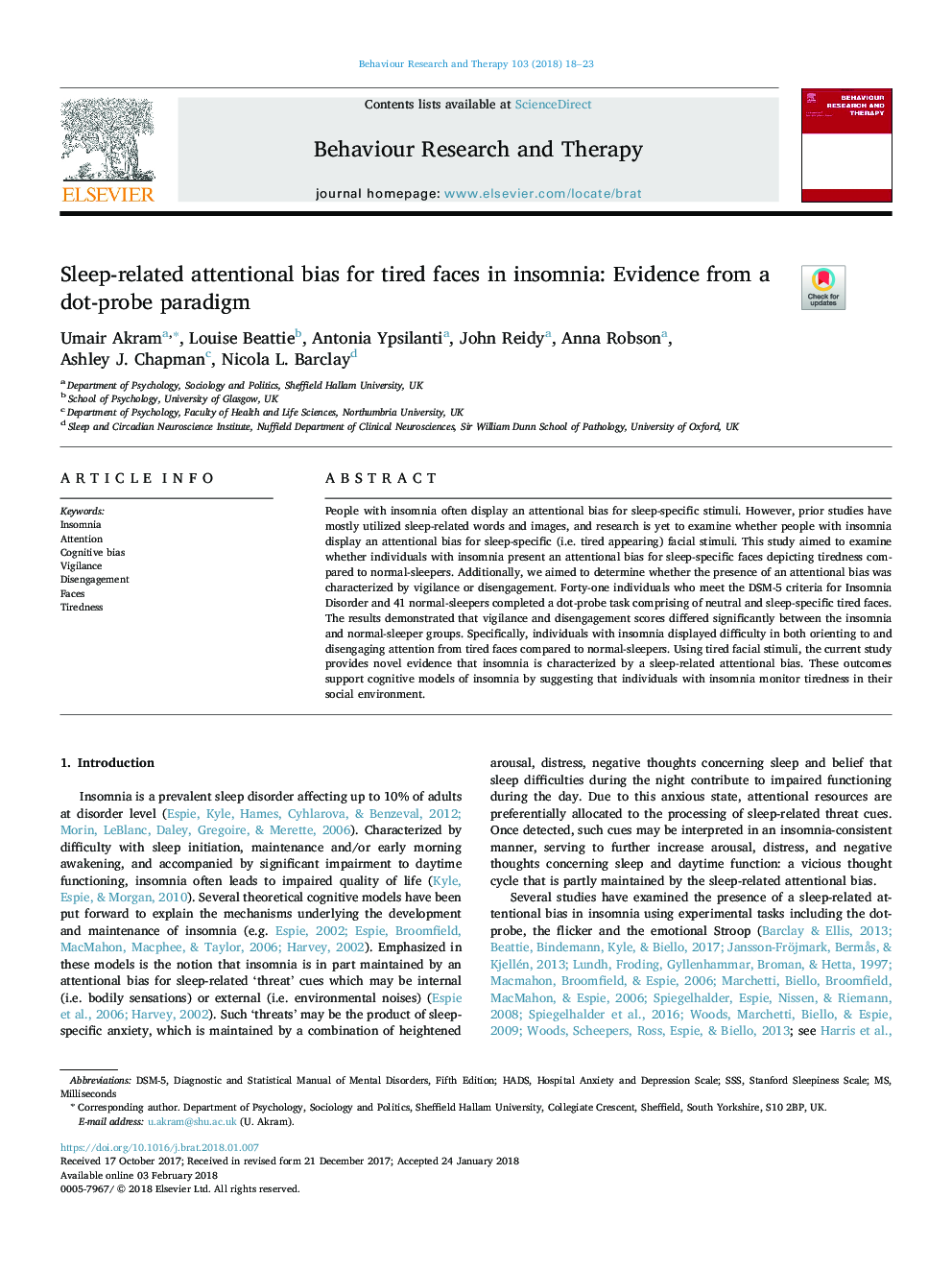| Article ID | Journal | Published Year | Pages | File Type |
|---|---|---|---|---|
| 7261853 | Behaviour Research and Therapy | 2018 | 6 Pages |
Abstract
People with insomnia often display an attentional bias for sleep-specific stimuli. However, prior studies have mostly utilized sleep-related words and images, and research is yet to examine whether people with insomnia display an attentional bias for sleep-specific (i.e. tired appearing) facial stimuli. This study aimed to examine whether individuals with insomnia present an attentional bias for sleep-specific faces depicting tiredness compared to normal-sleepers. Additionally, we aimed to determine whether the presence of an attentional bias was characterized by vigilance or disengagement. Forty-one individuals who meet the DSM-5 criteria for Insomnia Disorder and 41 normal-sleepers completed a dot-probe task comprising of neutral and sleep-specific tired faces. The results demonstrated that vigilance and disengagement scores differed significantly between the insomnia and normal-sleeper groups. Specifically, individuals with insomnia displayed difficulty in both orienting to and disengaging attention from tired faces compared to normal-sleepers. Using tired facial stimuli, the current study provides novel evidence that insomnia is characterized by a sleep-related attentional bias. These outcomes support cognitive models of insomnia by suggesting that individuals with insomnia monitor tiredness in their social environment.
Keywords
Related Topics
Health Sciences
Medicine and Dentistry
Psychiatry and Mental Health
Authors
Umair Akram, Louise Beattie, Antonia Ypsilanti, John Reidy, Anna Robson, Ashley J. Chapman, Nicola L. Barclay,
